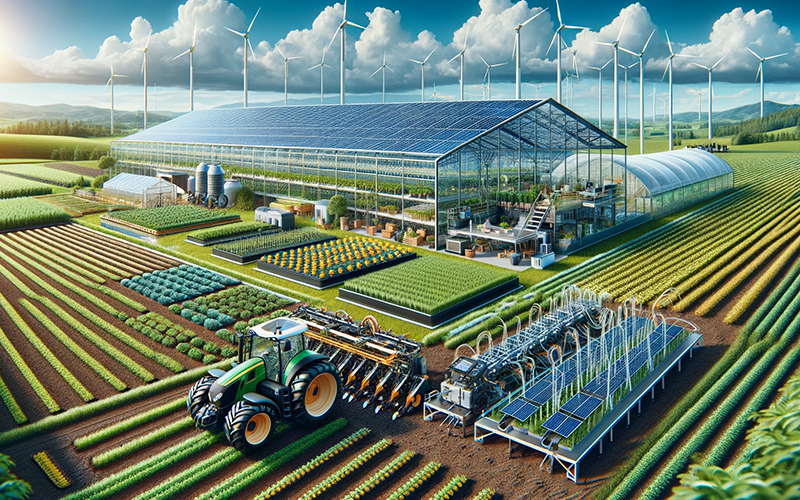Agricultural engineering is a combination of nature and technology, mixing the two to solve contemporary global challenges like food security and sustainability.
This discipline involves the application of engineering science and technology to make farming sustainable, efficient, and environmentally friendly. Agricultural engineers work on a variety of projects, from designing machinery and equipment to water resource management and bioenergy production.
How much can an agricultural engineer earn?
Starting salaries for agricultural engineers in the UK typically range between £20,000 and £30,000 per annum. As professionals gain experience and possibly acquire additional qualifications, their annual earnings can increase to between £40,000 and £60,000.
Those in senior or managerial positions often see their salaries reach £70,000 or more, contingent upon the scope of their responsibilities and the specific sector they are involved in.
Specialised roles or positions within cutting-edge research and international projects may command even higher salaries, reflecting the value and impact of their contributions to the field.
Career progression
Agricultural engineering provides a clear trajectory for career advancement and entry-level engineers can progress to roles with greater responsibility and complexity, such as project management or specialised research positions.
Additionally, opportunities for consultancy roles or positions within governmental and non-governmental organisations can further enhance an engineer’s earning potential and professional standing.
Routes to entry
Pursuing a career in agricultural engineering typically begins with obtaining a degree in agricultural engineering or a closely related field, such as environmental or biological engineering.
Universities offer programmes that blend theoretical knowledge with practical experiences, including internships and fieldwork, covering essential areas like soil science, crop management, machinery design, and sustainable farming practices.
Societal contributions
The impact of agricultural engineering extends far beyond individual financial gain, and engineers in this field are pivotal in developing solutions that address critical issues like enhancing crop yields, conserving water, reducing environmental footprints, and improving the sustainability of agricultural practices.
Their work supports the global mission to achieve food security and mitigate the effects of climate change, making a tangible difference in communities worldwide.
Attributes of an agricultural engineer
A successful career in agricultural engineering demands a combination of technical proficiency, problem-solving capabilities, and soft skills.
Key attributes include:
- Innovative thinking: ability to develop creative solutions to complex agricultural challenges.
- Technical acumen: strong understanding of engineering principles and agricultural technologies.
- Effective communication: skill in explaining complex technical issues in understandable terms to a variety of audiences.
- Flexibility: readiness to adapt to new technologies and changing environmental conditions.
- Commitment to sustainability: dedication to creating farming practices that are both productive and environmentally friendly.
Agricultural engineering offers a rewarding career path for individuals passionate about making a difference in the world, and it presents an opportunity to engage with cutting-edge technologies and contribute to solving some of the most pressing challenges of our time. With a strong demand for skilled engineers in this field, the career prospects and potential for making a global impact are substantial.
As the world continues to seek sustainable solutions for agricultural production, the role of agricultural engineers will only grow in importance, making it an inviting career choice for university students looking to make a difference.




